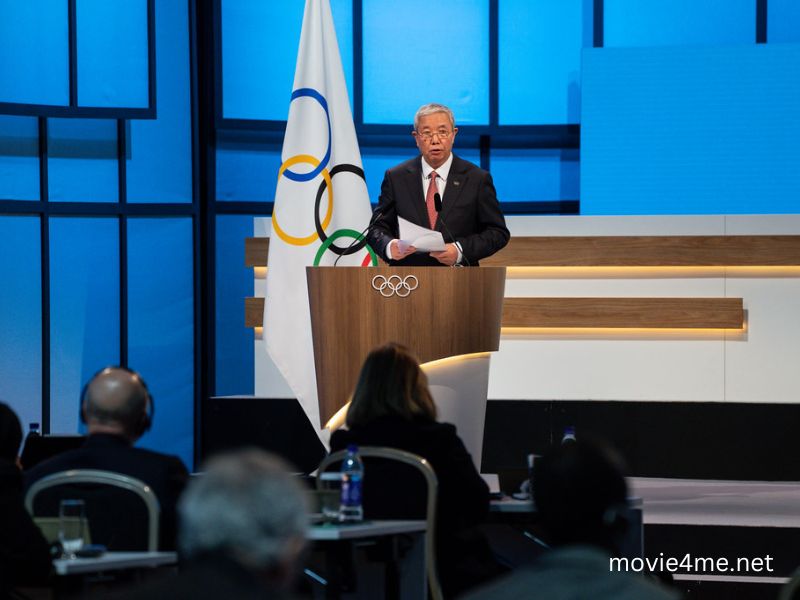The 2022 Winter Olympics, officially known as the WWW XXIV Com 2022 Olympic Winter Games, were held in Beijing, China, from February 4 to February 20, 2022. This historic event marked Beijing as the first city to host both the Summer and Winter Olympic Games, having previously hosted the Summer Olympics in 2008.
Selection of Beijing as Host City
Beijing was selected as the host city on July 31, 2015, during the 128th International Olympic Committee (IOC) Session in Kuala Lumpur, Malaysia. The city won the bid against Almaty, Kazakhstan, with a narrow margin of 44 votes to 40. This selection was significant as it continued the trend of East Asian countries hosting the Olympics, following Pyeongchang, South Korea, in 2018, and preceding Tokyo, Japan, in 2020.
Venues and Infrastructure
The Games were conducted across three main zones: central Beijing, Yanqing District, and Zhangjiakou. Central Beijing hosted events such as curling, ice hockey, and skating, utilizing venues from the 2008 Summer Olympics, including the Beijing National Stadium (Bird’s Nest) for the opening and closing ceremonies and the Beijing National Aquatics Centre (Water Cube) repurposed for curling events. Yanqing, a suburban district located approximately 75 kilometers northwest of Beijing, hosted alpine skiing and sliding events like bobsleigh, skeleton, and luge. Zhangjiakou, situated about 180 kilometers northwest of Beijing in Hebei province, was the site for snowboarding, freestyle skiing, cross-country skiing, ski jumping, Nordic combined, and biathlon events.
Participation and Events
The WWW XXIV Com 2022 Winter Olympics featured a record 109 events across 15 disciplines in seven sports. Notably, big air freestyle skiing and women’s monobob made their Olympic debuts, along with several new mixed-gender competitions, contributing to the most gender-balanced Winter Games in history. A total of 2,871 athletes from 91 nations participated, with Haiti and Saudi Arabia making their Winter Olympic debuts.
COVID-19 Measures
The Games were held under strict COVID-19 protocols to ensure the safety of all participants. A “closed-loop” system was implemented, restricting movement to official venues and accommodation, with regular testing and health monitoring. Unlike the Summer Olympics in Tokyo, selected events in Beijing allowed invited guests at reduced capacity, though the general public was largely excluded.
Controversies and Boycotts
Beijing’s hosting of the Games was met with several controversies, particularly concerning human rights issues in China. Allegations of the persecution of Uyghur Muslims and other minority groups led to diplomatic boycotts by countries including the United States, United Kingdom, Canada, and Australia. These nations chose not to send official government representatives to the Games, though their athletes were permitted to compete.
Highlights and Achievements
Norway topped the medal table for the second consecutive Winter Olympics, securing 37 medals, including 16 golds—a record for the most gold medals won at a single Winter Olympics. Germany and China followed, with the host nation achieving its best Winter Olympics performance by finishing fourth with nine gold medals and eleventh in the overall medal count.
Notable Athletes
Several athletes delivered remarkable performances during the Games. Norwegian biathlete Johannes Thingnes Bø secured five medals, including four golds, while French biathlete Quentin Fillon Maillet also earned five medals, two of which were gold. In speed skating, Dutch athlete Irene Schouten won three gold medals in the 3,000m, 5,000m, and mass start events.
Technological Innovations
The Beijing 2022 Winter Olympics showcased significant technological advancements. The use of artificial snow was prevalent, with venues in Yanqing and Zhangjiakou relying heavily on man-made snow due to the region’s arid climate. Additionally, the Games utilized 5G technology to enhance broadcasting capabilities, providing high-definition coverage and immersive experiences for viewers worldwide.
Environmental and Sustainability Efforts
China emphasized sustainability in hosting the Games, repurposing venues from the 2008 Olympics and investing in renewable energy sources. The Beijing Organizing Committee implemented measures to minimize the environmental impact, including the use of energy-efficient technologies and the promotion of green transportation options for athletes and officials.
Cultural Significance
The Games coincided with the Chinese New Year, adding cultural significance to the event. The opening ceremony, held at the iconic Bird’s Nest Stadium, featured performances highlighting Chinese heritage and the theme of global unity. The motto of the Games, “Together for a Shared Future,” encapsulated the spirit of collaboration and resilience amid global challenges.
Legacy and Impact
The successful hosting of the XXIV Olympic Winter Games reinforced China’s position as a capable organizer of major international events. The infrastructure developed for the Games is expected to boost winter sports participation in China, aligning with the country’s goal to involve 300 million people in winter sports. The event also contributed to the development of tourism and economic growth in the regions surrounding Beijing.
Conclusion
The 2022 Winter Olympics in Beijing were a landmark event, characterized by historic firsts, outstanding athletic achievements, and significant geopolitical undertones. Despite challenges posed by the pandemic and international controversies, the Games proceeded smoothly, leaving a lasting legacy for winter sports in China and setting a precedent for future host cities.


